Peaky Blinders season 6 review: A farewell to the Blinders
The season offers just enough to give a fitting farewell to the Shelby family and the notorious Peaky Blinders
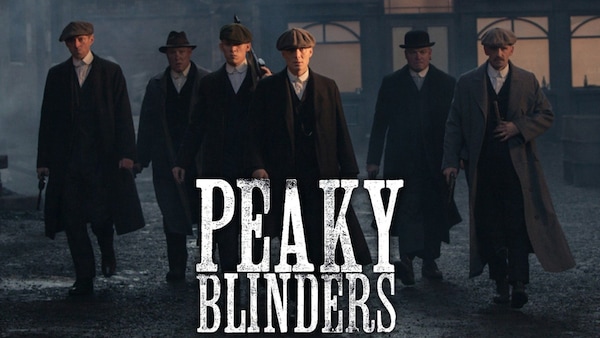
Last Updated: 12.25 AM, Jun 11, 2022
Story:
The aftermath of the failed assassination attempt of the fascist leader Sir Oswald Mosley (Sam Claflin) has had more friendly casualties than Tommy Shelby (Cillian Murphy) anticipated. Along with two of his allies, Barney (Cosmo Jarvis) and Aberama Gold (Aidan Gillen), Tommy lost one of his own - the matriarch of the Shelby family, Polly Gray. Michael (Finn Cole) believes that Tommy is to be blamed for his mother’s death and swears vengeance. Meanwhile, a powerful American named Jack Nelson is interested in forming an alliance with Mosley and the IRA.
Review:
British crime dramas offer something truly unique in terms of their narrative structure and their overall appeal when compared to some of the popular American crime dramas. However, Peaky Blinders, created by Stephen Knight, stands down as one of the best crime dramas ever created. The sixth and final season featuring the gangsters known as the Peaky Blinders continue to maintain its own lofty standards despite a few minor hiccups.
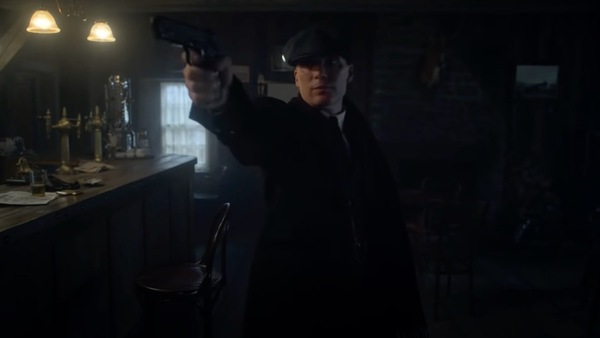
Peaky Blinders is the perfect union of style and substance. Or at least that has been the case for a vast majority of its episodes. The unmistakably stunning visuals and sound design coupled with an engaging narrative and excellent performances make it the most coveted British TV series in recent years. While British crime dramas such as Line of Duty, Luther, and Happy Valley have left an indelible mark on global audiences, none of them have had the same impact outside of the British Isles since Sherlock.
Cillian Murphy delivers yet another riveting performance as the complex anti-hero Thomas Shelby. His PTSD and his inner demons are further explored in season 6, as he desperately attempts to defeat his enemies, and find the inner peace he has been craving since he returned from the Great War (World War I). Murphy perfectly captures the inner conflict that haunts Tommy. The writers have also used symbolic references to explore Tommy’s duality through visual imagery as well as through the background scores.
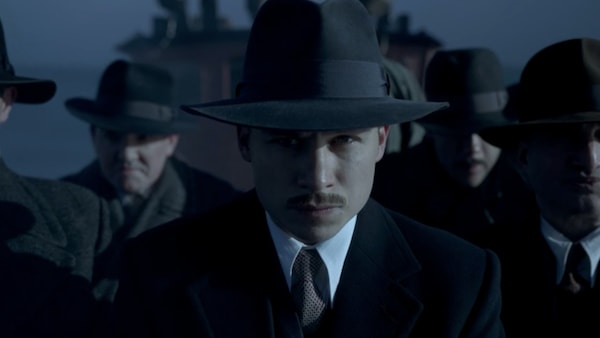
As in the case of the first five seasons, the contemporary music used for certain scenes is carefully added to elevate the 1930s aesthetic in season 6. And no TV series on Earth can execute stylised slow-motion scenes better than Peaky Blinders. The screenplay and the performances of the excellent supporting cast including Paul Anderson, Sophie Rundle, Natasha O'Keeffe, Tom Hardy, Finn Cole, and Sam Claflin also continue to be a driving force in the TV show’s ability to sustain its quality. However, the untimely passing of Helen McCrory, who essayed the irreplaceable Polly Gray, has certainly left a void in the plot’s central narrative. But surprisingly Sophie Rundle’s Ada Thorne has stepped up to deliver a powerful performance for season six.
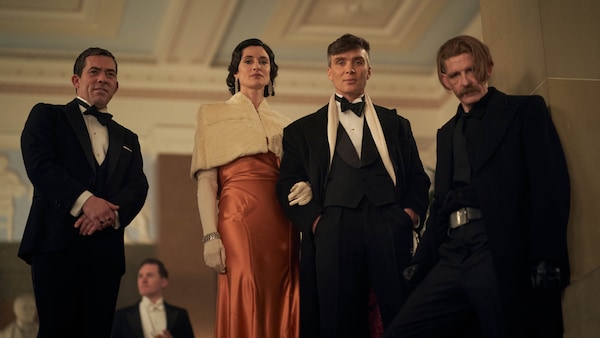
Ada’s evolution as a force to be reckoned with does not give the impression that it was shoehorned into the narrative. Instead, it’s an organic progression that perfectly fits with her journey from season one to five. Sadly, her screen time is relatively limited and denies her from being the real star of season six. Whereas, newcomers Amber Anderson and James Frecheville, despite their significant performances, fail to truly establish themselves as the true antagonists of season six.
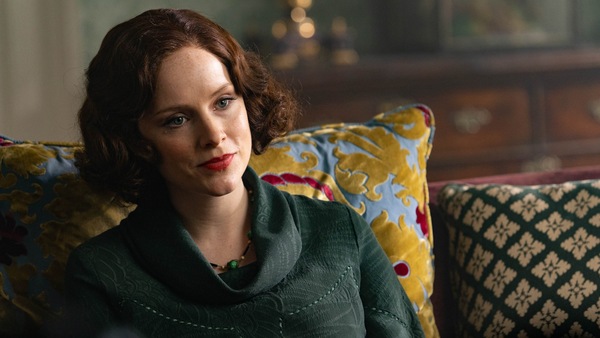
The lack of a menacing villain such as Sam Neill’s Major Campbell or Adrian Brody’s Luca Changretta has crippled the sixth season to a certain extent. Season five’s primary villain, Sir Oswald Mosley, is forced to play second-fiddle to Amber Anderson’s Lady Diana, and even the Irish Republican Army (IRA) appear less menacing. While an argument could be made that Finn Cole’s Michael or James Frecheville’s Jack Nelson, or even Anya Taylor-Joy’s Gina Gray, are also the real threat to Tommy and the Shelby family, their arcs lack the heft to justify the notion. The lack of slightly more defined roles for screen-acting powerhouses such as Stephen Graham and Tom Hardy may have been also a wasted opportunity.
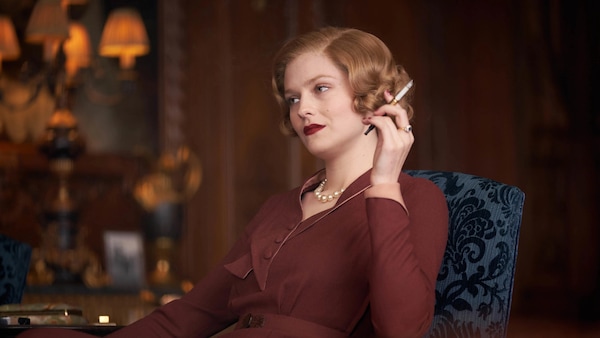
Despite its flaws, where style may have edged substance this time around, the season excels in several areas, with its foreshadowing of the narrative, and the explorations of themes such as trauma, revenge, loss, grief, existentialism, and socio-politics. In fact, socio-politics is where the series truly shines this season with references to contemporary politics. The series also puts emphasis on time with references for the same, through imagery and dialogue, littered throughout its narrative. The final scene of the season risked being a cliche, and almost a little too similar to the ending of Sons of Anarchy, but Stephen Knight has tweaked it just enough to give the series a fitting farewell.
Verdict:
The Shelby family and the Peaky Blinders have delivered yet another engrossing story about organised crime in early 20th century England. The vibrant visuals and riveting performances by its star-studded ensemble overshadow a few noticeable issues. With several unanswered questions, the recently announced sequel film could potentially tie up any loose ends.
WHERE
TO WATCH
Subscribe to our newsletter for top content, delivered fast.

